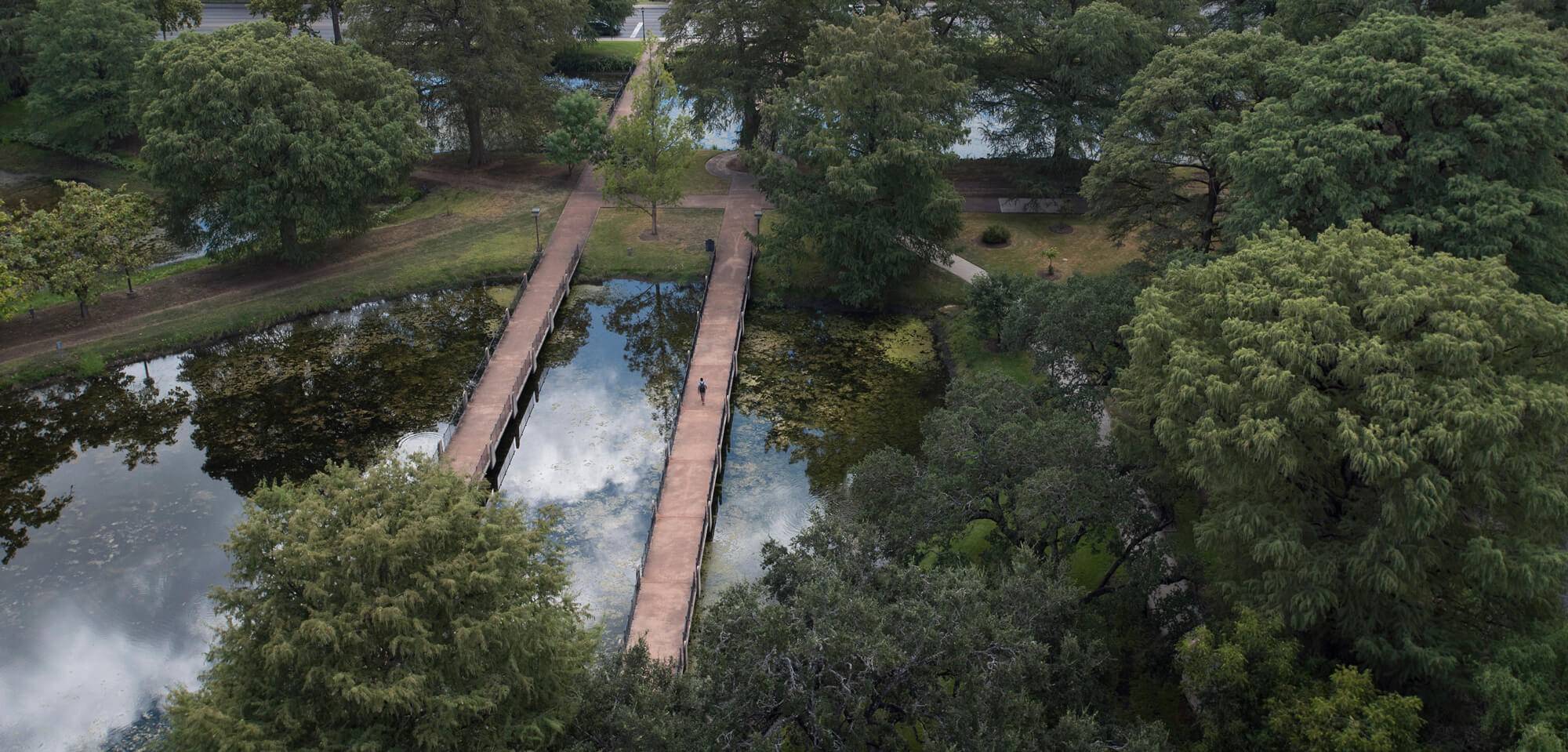by Emma Carberry
Outreach Coordinator, College of Education
December 7, 2018
Vanessa Gonzalez still recalls the day, during her first year as a teacher, that she met Dr. Julie Jackson, associate professor in the Curriculum and Instruction Department at Texas State University. “She was giving a lesson [at my school] on interactive word walls…and that opened up my mind to the idea that science can be so much fun,” Gonzalez remembers. This moment sparked her love for teaching science, and she began applying Jackson’s pedagogy in her own classroom. This November, almost twelve years later, the Science Teachers Association of Texas (STAT) recognized both women with prestigious awards. Jackson received the Skoog Cup College Faculty Award, which is presented to someone who has made significant contributions to the development of quality science education, while Gonzalez, living proof of Jackson’s contributions, was awarded Elementary School Science Teacher of the Year.
Jackson’s lesson was also one of the reasons Gonzalez decided to pursue her master’s degree in Educational Leadership at Texas State. She had hopes of becoming an instructional coach and inspiring fellow educators in the same way that Jackson had inspired her. In her master’s program, Gonzalez was thrilled to work with Texas State professors, who she says have a unique ability to help their students understand who they really are, what their strengths are and how to contribute to their communities. Building on her newfound interest in teaching science, Gonzalez’s thesis focused on how children at play engage in scientific discovery.
This approach to teaching science struck a chord with Gonzalez, who immigrated from Ecuador when she was six years old. She recalls several negative classroom experiences she had as an English Language Learner in an English immersion classroom, which left her with gaps in her education. These negative experiences inspired her interest in teaching through kinesthetic learning - something she wishes teachers had done for her. “Kids learn so much when they are given the opportunity to first explore hands-on,” she says. She believes if she had been given that same opportunity, she would have been more engaged in her education and made connections to concepts more quickly.
As she worked on her thesis, Gonzalez remembers bringing her research into her classroom daily. This was one of her favorite aspects of her Texas State education, she recalls. She thoroughly enjoyed that she and her classmates were able to leave the Texas State campus and apply the concepts they had learned in their own work as teachers, instructional coaches and principals. Now, five years after earning her master’s degree, she is still eager to apply her outside learning in her own classroom. When she began working at Cambridge Elementary School in 2015, she noticed that the school wasn’t using the STEMscopes model that she had used previously and found to be an effective teaching and learning tool. Gonzalez took it upon herself to write a grant to bring STEMscopes to Cambridge, and the school eventually adopted the program.
